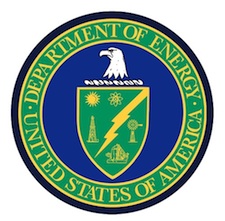The United States Department of Energy announced on Tuesday its intention to invest up to $50 million in the research and development of tools and technologies that would make the country’s energy infrastructure more resilient and secure. Over $20 million of that amount has been allocated to projects focusing on cyber security.
The funding, awarded to various national laboratories, will be used to support early-stage research and development of next-generation tools and technologies that improve the resilience and security of critical energy infrastructure, including the power grid, and oil and natural gas infrastructure.
Nine national laboratories in California, Illinois, Idaho, Tennessee, Washington, Colorado and New Mexico have been selected for a total of 20 projects focusing on protecting energy infrastructure from cyber threats and improving information sharing.
Specifically, the Energy Department wants tools and technologies that enhance cybersecurity, communication systems for resilient grid architectures, energy delivery systems that can adapt to survive a cyber incident and ones that are verifiably trustworthy, partnerships for reducing risks via vulnerability mitigation, and identifying energy delivery systems that are inadvertently accessible from the Internet.
For example, the Idaho National Laboratory has been tasked with developing a technique that will help secure firmware on the embedded systems used by field devices, and the Los Alamos National Laboratory will work on designing a quantum secure communication operational network.
The Pacific Northwest National Laboratory has been assigned six projects, including one for developing blockchain cybersecurity technology for distributed energy resources at the edge of the grid.
“These technologies are expected to have broad applicability to the U.S. energy delivery sector by meeting the needs of the energy sector in a cost-effective manner with a clear path for acceptance by asset owners and operators,” said the Energy Department.
While the energy sector in the United States has not suffered damaging attacks such as the ones that hit Iran, Saudi Arabia and Ukraine, organizations in this sector and the Energy Department itself have fallen victim to cyberattacks.
The most recent report on such attacks is from security firm Symantec and it describes the activities of Russia-linked cyberspies that may have gained access to control systems housed by energy facilities.
Related: Learn More at SecurityWeek’s 2017 ICS Cyber Security Conference
Related: Energy Management Systems Expose Devices to Attacks
Related: Injection Attacks Common in Energy and Utilities Sector
Related: Furtim’s Parent – State-Sponsored Malware Targets Energy Sector














